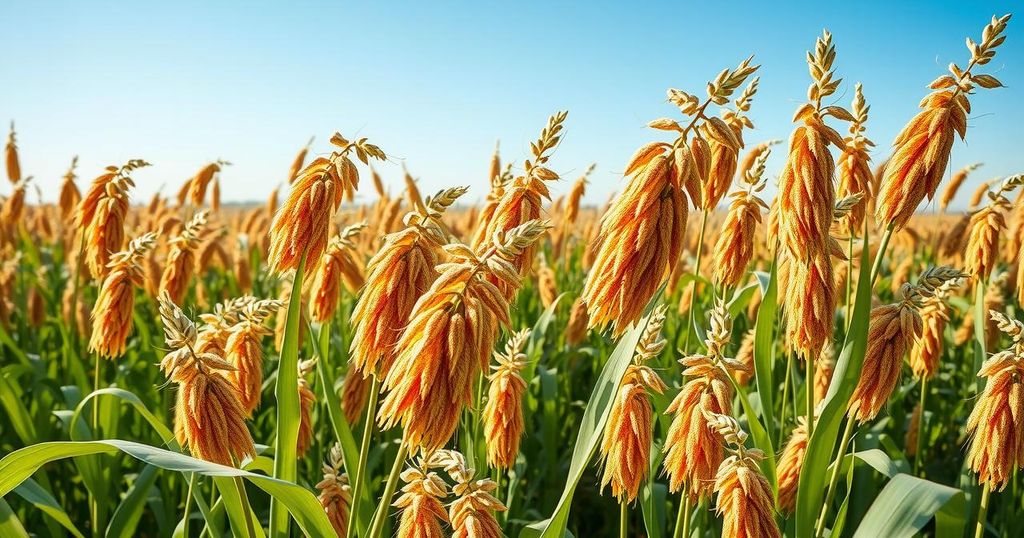Experts are advocating for sorghum as a sustainable alternative to maize in addressing food security in Malawi. Sorghum’s resilience to climate change, low water consumption, and superior nutritional profile position it as a vital crop. Sorghum United is facilitating its adoption through education and empowerment of local farmers. Increased awareness and supportive policies are essential for its mainstream acceptance and transformative potential in African agriculture.
Sorghum is increasingly recognized as a solution to the food security challenges faced by Malawi and other African nations. Traditionally, maize has served as the principal staple, but its susceptibility to climate change is prompting experts to advocate for sorghum, a resilient and nutrient-rich grain, as a sustainable alternative. The emphasis on sorghum is driven by its ability to withstand drought and adapt to extreme conditions, positioning it as a critical crop amid changing climate patterns.
Nate Blum, CEO of Sorghum United, champions this shift, declaring, “Sorghum is the future of agriculture.” He highlights its climatic adaptability, explaining that sorghum can go dormant during dry spells and resume growth once moisture returns. This resilience is particularly beneficial for regions affected by climate variability.
Additionally, sorghum demonstrates significant water conservation, utilizing far less water than maize—sometimes merely one-tenth of what is required by maize. Blum states, “Sorghum and millets offer common-sense solutions to our global food security and climate challenges,” emphasizing their importance in regions facing erratic weather.
Nutritionally, sorghum outperforms maize, providing higher content of fiber, protein, and essential micronutrients, while also being gluten-free and having a low glycemic index. Blum asserts, “Sorghum isn’t just food—it’s an opportunity,” obtaining diverse applications that promise increased income for farmers and less dependence on volatile markets.
Despite its advantages, smallholder farmers encounter barriers to adopting sorghum due to issues related to market access and mechanization. However, Sorghum United is actively working to alleviate these challenges through trial programs across several African countries to empower local farmers. Blum notes, “We don’t just introduce solutions—we empower local farmers to create their own.”
To facilitate the mainstream acceptance of sorghum, enhancing consumer awareness is imperative. Educational initiatives spearheaded by Sorghum United include children’s literature, video games, and engagements at high-profile events, such as the Oscars, featuring celebrity endorsements to raise awareness. “We’re even leveraging celebrity influencers at global events like the Oscars,” reveals Blum.
Investment in sorghum-friendly governmental policies is also vital for food security, with Blum stressing the necessity of public health education regarding these grains. “Two-thirds of diseases are diet-related. With sorghum, we can turn the tide,” he emphasizes.
In conclusion, as Africa confronts food security challenges traditionally linked to maize, sorghum emerges as a promising alternative. With the integration of supportive policies, strategic investments, and heightened awareness, sorghum has the potential to revolutionize African agriculture and secure a healthier future for generations amid climate uncertainty.
In summary, sorghum presents a sustainable and resilient solution to food security issues in Malawi and the broader African context. Its adaptability to climate change, coupled with health and economic benefits, positions it as an essential crop for the future. Strategic initiatives to enhance adoption and awareness, along with supportive policies, could significantly contribute to transforming agricultural practices across the continent, ensuring food security and empowering local farmers.
Original Source: www.nyasatimes.com






